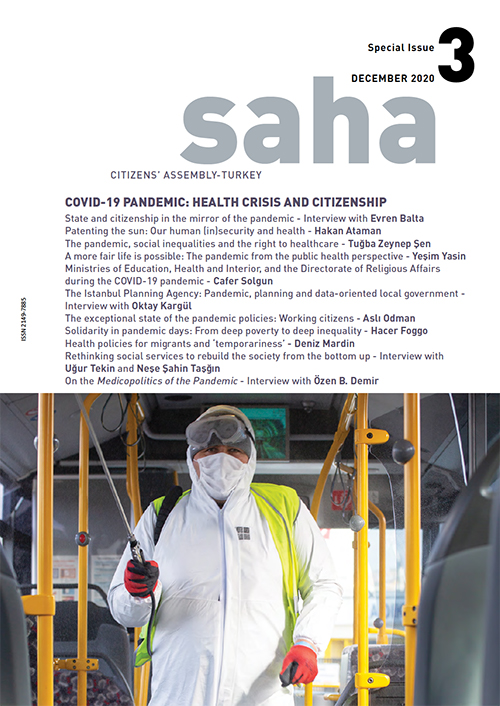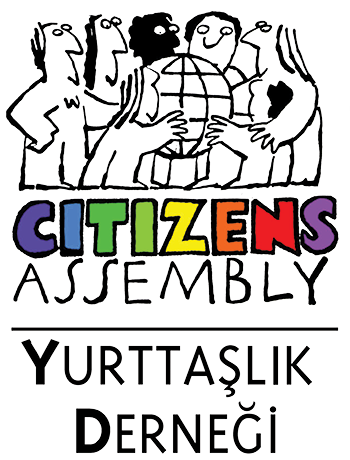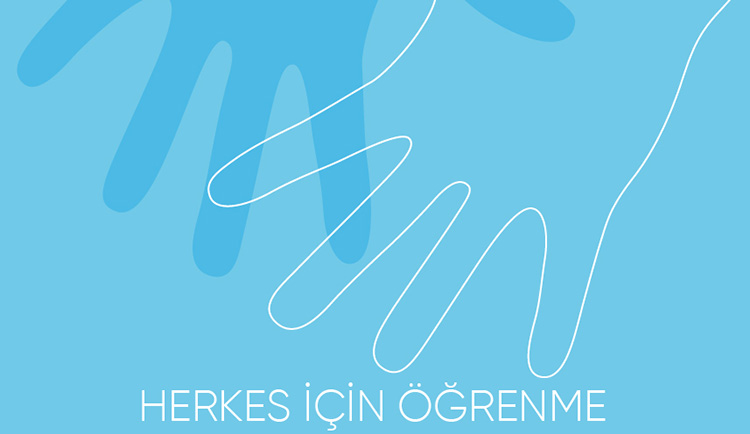
saha 3 : Covid-19 Pandemic : Health Crisis and Citizenship
The global health crisis triggered by the COVID-19 pandemic is phenomenal and is likely to have a radical impact on the definition of citizenship and state-society relations. It may not be possible to predict today the direction the world, which is currently going through a deep and multi-dimensional (economic, political and ecological) crisis, will follow after the shock caused by the pandemic. However, undoubtedly the days we go through will have long-term consequences. Likewise, the past year has generated striking and even destructive effects in several areas varying from the economy to social policy, from social gender relations to the environment, from international politics to security technologies. The magnitude of unemployment and income reduction caused by the measures taken in the name of public health has reached a level that cannot be easily overcome in a wide part of the geography, except for a limited number of countries. It remains uncertain how long the economic recovery will take for the countries that have managed to compensate for this shock with programs such as temporary income support. Simultaneously, economic uncertainties have uncovered the problems due to the structural reforms that have been implemented almost all over the world in the last four decades. The first-hand results of the pandemic, which emerged under the circumstances where unemployment increased, the phenomenon of working poverty became permanent, and welfare state practices were undermined, are experienced much heavily precisely due to these very reforms.
On the other hand, all of this may result in questioning and a reaction to the dominant policies of the last decades. The pandemic can deepen the discomfort with neoliberal globalization, which has already lost much of its glory. However, whether this will give way to more freedom and equality or not is still a question mark. At one end of the spectrum are authoritarian populist movements’ promises of autarky, and at the other are demands such as the right to universal basic income or progressive taxation. Briefly, both the results of the pandemic conditions and the transformations that can be experienced after the acute shock caused by the pandemic are the subject of the political struggles. The course of these struggles will also determine how the content of the notion of citizenship will be redefined. If we consider citizenship not only with its normative dimension of rights and duties but also as an amalgam of practices, we can state that the meaning of citizenship in the post-pandemic period will be reconstructed through these tough questionings and struggles. Whether they will lead to a more securitised, restrictive and controlling state-society relation or not will depend on how effective the reactions from below will be.
In this issue of saha we focus on the landscape occurring with the pandemic and its projections in the context of Turkey. We deal with Turkey’s adventure, which has undergone dramatic transformations in the last twenty years, together with the global developments. We seek to survey the traces of the pandemic in a wider range, thus questioning how the health crisis is interacting with the existing political economic context. In this sense, the focus of this issue is the question of the consequences we face under the current circumstances, especially in terms of the segments whose voices are not heard enough. Ultimately, we wish to contribute to the rethinking of the practice of citizenship in Turkey in a more egalitarian and libertarian manner





